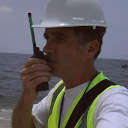Week 3: Unveiling HUD Reconstruction Criteria
Explore HUD reconstruction criteria for federal recovery programs. Understand eligibility factors, income level priorities, and potential waivers for effective long-term recovery.
By Murray Wennerlund, published on
Review the eligibility requirements needed to qualify for long term recovery programs provided by federal agencies like HUD.
HUD Reconstruction Criteria: (match one or more)
- Home damage assessment must exceed 80% of the total repair costs; or
- You'll need a FEMA Substantially Damaged Letter signed by one of the following local authorities; local municipal floodplain manager, Homeland Security Agency and FEMA representative, or zoning/building permit office; or
- A FEMA Condemnation Letter, also signed by these local officials, may be required.
In most cases, HUD CDBG-DR initiatives initially allocate 90% of their resources to aid households based on income. They start with low-income individuals and extend assistance to those classified as moderate-income (80% or below the Area Median Income). Some states might seek waivers in the form of action plan amendments to this policy, broadening the eligible income group while reducing the percentage of funds for low-income households. Generally, HUD CDBG-DR programs offer support to households with income levels up to 120% of the Area Median Income within a year of the program's commencement, if not sooner.

